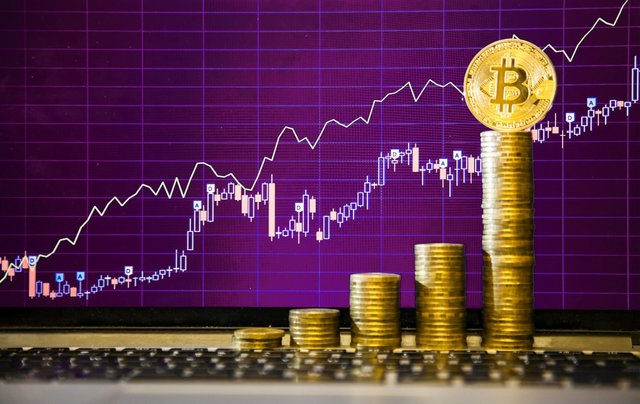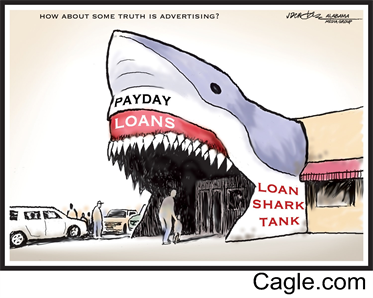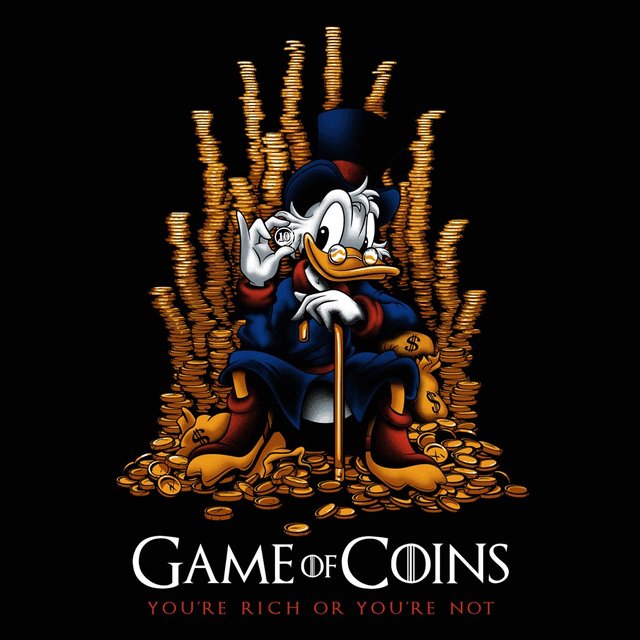CRYPTOCURRENCY EVOLUTION IN DATA ERA
How To Take The Advantage Of The Momentum And Be Rich.

The good news is this: Cryptocurrencies are super complicated, and
most people who talk about them don’t understand them at all. And entire
books are written about them that are so unreadable and boring it’s
worthless to buy them and try to understand them.
By the time we finish this series, you will have a great grasp of the
way cryptocurrencies work and their potential advantages over traditional
currencies.
And very importantly, you’ll have an idea of how you can start making
money today with this knowledge of cryptocurrencies, even if you do not
have any cryptocurrencies and have no plans to soon.
Cryptocurrencies are true “choose yourself” currencies and fit the
trends in every industry over the years. There’s an evolutionary
direction everything’s moving in — money is no different. I talk
about this evolution in the next seris.
Theism ➔ Humanism ➔ “Data-ism”
Take any industry: medicine, for example. If you got sick 1,000 years
ago (or 5,000 years ago or 20,000 years ago), you’d pray to God (or a
god) to save you from this illness inflicted upon you.
Or you’d assume you sinned and were being punished and this was
why you were suffering.
That’s when medicine depended on theism, a belief that a higher
power would solve our problems. Theism gave way to humanism.
We went to human experts instead ofshamans or priests.
He or she patted our backs until we coughed. Maybe
we’d get a little hammer that would hit our knee. And the doctor would
say, “Take two aspirin and call me in the morning.”
This was fine, but there were so many diseases and illnesses we couldn’t
solve. And humans are ultimately flawed. George Washington died because
doctors thought leeches would suck the illness out of his body. And
even now, 250,000 deaths from human malpractice occur each year.
Data solve much of the problem. Instead of the doctor just looking
deep into your eyes with a bright light, they now send you over to get
an MRI, an EEG or even a genetic test. In the near future, the doctor will
feed those data into a database, and the database will then say what likely
illnesses you might have, what medicines to take and what surgeries you
need, and robots will be part of surgical processes. Average life spans go
up every year now.
War, while not an industry, also follows this evolutionary trend.
Three thousand years ago, if two tribes or kingdoms prepared for war,
they would pray to their gods. They would have festivals and sacrifices
and then go to war. It was assumed that the country with the most powerful
gods would win the war.
One of the most sacred texts in Hinduism, for instance, is simply
about a war. Who was the winner? The side that had Krishna, the most
powerful god.
In every religion, we have seen aspects of this.
Until, again, a few hundred years ago.
Bullets. And people. Humans would decide war. Whoever had more
bullets and people on the ground would win the war.
But where is the war now? I will tell you. It’s being fought every day
all around us. The war is being fought with data.
Every day, some country (guess who) is trying to bring down the
electrical grids of Eastern European countries by hacking into their easily
hacked older computers.
Again, we saw a whiff of the “data wars,” a screenshot but not more,
in the U.S. election. Was the election manipulated? Were emails hacked?
Of course they were. And that will never stop.
The data wars are in full force. The people reading about them in
the newspapers are only reading the rough draft of history. History will
eventually be written by the greatest hackers in these wars. The winners.
Money is following this evolutionary path as well. I don’t even have
to fully describe it.Take out a one dollar bill.Look at the back:
“In God We Trust.” A leftover remnant of theism. If you can trust God,
you can trust this dollar bill.
But even then, trust our Founding Father George Washington and the
signature of the secretary of the Treasury. This is a contract! It’s not just
a piece of paper. But you have to trust humans to make money in its current form work.
And as we will see, humans can make mistakes. And mistakes about money,
made by a few humans in charge, can have disastrous consequences
that can wipe out entire countries.
Data. “Cryptocurrencies” are the next generation.
Why do I put “cryptocurrencies” in quotes? Because it’s a bad word.
I don’t say that Amazon is a “TCP/IP application.” Even though it is.
You don’t need to understand the deepest underpinnings of cryptocurrencies
to understand why they are important, why the trend is happening
and why there is a $150 trillion demand but only $200 billion in supply.
You need to understand what I talk about in this seris.
This will help you avoid the scams. Get started in the right places.
And understand that this trend is only the beginning. No matter how late
you think you are in this game, we are still only in the first inning.
But this evolutionary direction is only one aspect.
It doesn’t quite answer why cryptocurrencies exist. This boils down to
a five-second history of money.
Money has been around, we’re learning, for hundreds of thousands of
years. But ask 10 people on the street what money is — I guarantee you’ll
get 10 different answers. (The same can be said about both bitcoin and
blockchain, but we’ll get there.)
A good answer: Money is the bubble that never pops.
Or Yuval Harari’s definition, describing money as a story: “Money, in
fact, is the most successful story ever invented and told by humans, because
it is the only story everybody believes.”
But let’s make it easy and bring it down to earth. Why do we have
money in the first place?
Two reasons:
A) As a “store of value.” You create value in your life. For instance,
through savings from the hard work at a job. Or you build a business that
has value and you sell it. Or you sell a house.
You created this value and it has to be bottled up somewhere. Like a
genie in a bottle. So later you can unleash the value and make all of your
dreams come true.
Originally it was resources you simply had on your land. Rice. Wheat.
The land itself. Later it was metals. Gold is often talked about as a “store of value.”
But it’s not. It’s a rock. Gold has some intrinsic value. It can be used as an electric conductor,
for instance. It has antibiotic properties. It probably has about $60 in intrinsic
value. The rest of the value is that for millennia, people have relied
on it as a store of value.
People buy necklaces or rings or other jewelry not only as ornaments
but as convenient ways to travel with this store of value.
And for a long time, gold was used to back paper currency. Until everyone
decided that “In God We Trust” seemed to have even more extrinsic
value than the metal itself.
And bitcoin is a store of value. A great example is to see the
correlation in the price of bitcoin with any government change in Argentina.
Argentina is known for being a horrible country as far as how they treat
their currency. They have had hyperinflation, the government has seized
money directly out of bank accounts, there is a black market, there is even
something called a “blue market.”
The currency is a mess. And whenever it looks uglier than usual, bitcoin
spikes.
How come? Because the wealthy have gotten smarter. They know
they can’t rely on their currency, or even gold, to get their wealth out of
the country in an emergency. So they use bitcoin.
This is the canary in the coal mine. A clue as to what will come.
Argentina, in its wretchedness, has pointed toward the future.
As our faith in humans disappears, our reliance on stable and trustworthy
data will rise.
B) To pay for things. And to sell things. First there was barter. But
think about the problems of this. For every two items, people had to figure
out what the items were worth relative to each other.
If I had a pair of shoes and wanted an apple, how many apples would
I get for a pair of shoes? But what if I had only one pair of shoes (I’m a
cobbler), and I want an apple and some milk. Do I need to cut my shoes
in half?
And with hundreds of possible items to barter, that’s tens of thousands
of exchange rates. It’s too complicated. Money made out of hard-to-get metal
became a common store of value that can be easily traded because one side
of the transaction always has the same value. So negotiation became much easier.
Again, I said, “One side of the transaction always has the same value.”
But that all depends. What if supply went up and nobody told us?
Well, that’s a BIG problem cryptocurrencies solve. And we’ll get into
all of the pros (and cons) of crypto in a moment.
First, here’s the evolutionary direction that everything in the world is
moving in. It answers why the rise of cryptocurrencies is just an inevitable
and natural evolution of money.
“Bitcoin is almost to computers what quantum mechanics is to physics.” — Naval Ravikant
I spoke about the evolutionary trend in every industry: theism (a belief
that a higher power will solve our problems) to humanism (a belief
that humans will solve our problems) to data-ism (a belief that data will
solve our problems).
But now let’s look at the trends and problems in money. From barter
to precious metals to government-controlled currencies to where
we are now.
We will see that even in the history of money, and not just the
evolution of every industry, the demand for a data-based currency
solves critical problems that must be addressed in the decades and
generations ahead.
CRYPTO IS A NATURAL EVOLUTION OF MONEY
Human error, frailty and weakness will be the downfall of traditional
currency, and it has already begun.
Join Me Again Tomorrow For Series 3 of Crypto Series. Follow me so as
not to miss the next series from my blog.



welcome to steemit,
Get to know how to earn more on your posts and get more followers.
Make new friends and interact.
We can share our thoughts.
In the steemit school, we have ultimate contest challenges where you get to win and make investments.
You need support from a community to grow and earn easily on steemit.
I recommend one for you.
Meet over 3k + steemians.
Steemit is a business, we will teach you how to succeed
join the steemit school on discord https://discord.gg/pqWrzBn
If this comment help you please upvote and follow
ok. thanks.
You are welcome
Good piece mate, probably make a TLDR section as well for people who like to scan articles...
Thanks for stopping by. More to come later.